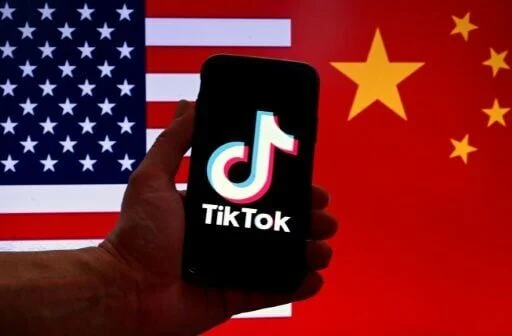The Republic of China has warned the United States that a proposed ban on TikTok would “come back to bite” them, ahead of a congressional vote that could lead to the app being banned.
Africa Today News, New York reports that U.S. House of Representatives on Thursday passed a bill that would lead to a nationwide ban of the popular video app if its China-based owner doesn’t sell, as lawmakers acted on concerns that the company’s current ownership structure is a national security threat.
Passed by a vote of 352-65, the formal name of the bill is the Protecting Americans from Foreign Adversary Controlled Applications Act. Its future in the Senate is uncertain. With over 150 million users in the United States, TikTok is a fully owned subsidiary of ByteDance Ltd., a Chinese technology company.
The lawmakers contend that ByteDance is beholden to the Chinese government, which could demand access to the data of TikTok’s consumers in the U.S. any time it wants. The worry stems from a set of Chinese national security laws that compel organizations to assist with intelligence gathering.
But ahead of Wednesday’s vote, Chinese foreign ministry spokesperson Mr Wang Wenbin accused the U.S. of “suppressing TikTok” despite the fact that it “never found evidence that TikTok threatens national security.”
Read Also: Nigeria-China Bilateral Relations and Nigeria’s Development
“This kind of bullying behaviour that cannot win in fair competition disrupts companies’ normal business activity, damages the confidence of international investors in the investment environment, and damages the normal international economic and trade order,” Wang added. “In the end, this will inevitably come back to bite the United States itself.”
The move was similarly pilloried by Chinese media, with several newspapers featuring satirical cartoons ridiculing the US effort to ban the app. One newspaper, the Global Times, accused the US of “ugly behaviour” and abusing “the concept of national security” to seize the app “by force”.
As is the case with other social media platforms, TikTok is banned in China. Users in the country use a similar app, Duoyin, which is only available in China and subject to monitoring and censorship by the government.
TikTok is owned by a Beijing-based, Cayman Islands-registered firm, Byte Dance.
If the US bill becomes law, ByteDance would be required to sell TikTok within six months or face a ban from US app stores and web hosting platforms.
“We have given TikTok a clear choice,” said Rep. Cathy McMorris Rodgers, R-Wash. “Separate from your parent company ByteDance, which is beholden to the CCP (the Chinese Communist Party), and remain operational in the United States, or side with the CCP and face the consequences. The choice is TikTok’s.”
TikTok has denied it has any links with China’s government and said it has restructured the company to keep U.S. data in the U.S. Former President Donald Trump unsuccessfully tried to ban the app in 2020.
Trump, who on Tuesday passed the delegate threshold to clinch the Republican nomination to become its presidential candidate, is now against the ban, saying it would unfairly benefit Facebook.
House passage of the bill is only the first step. The Senate would also need to pass the measure for it to become law, and lawmakers in that chamber indicated it would undergo a thorough review. Senate Majority Leader Chuck Schumer, D-N.Y., said he’ll have to consult with relevant committee chairs to determine the bill’s path. U.S.
President Joe Biden has said if Congress passes the measure, he will sign it. TikTok has long denied that it could be used as a tool of the Chinese government. The company has said it has never shared U.S. user data with Chinese authorities and won’t do so if it is asked.
Africa Today News, New York recalls that sometime last week, TikTok distributed a message to many of its American users, calling on them to call their representatives to prevent the government from stripping “170 million Americans of their Constitutional right to free speech.”

